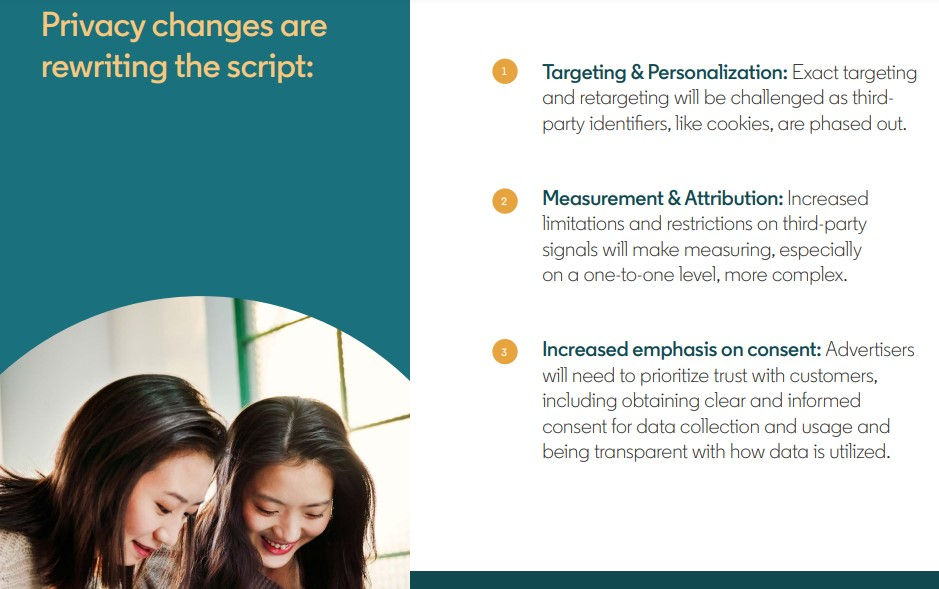How is Data Used in Marketing? - [Insights to Impact]
- Madhu Kumar C
- Jul 4, 2023
- 4 min read
Updated: Feb 13

How is Data Used in Marketing?:
Data plays a crucial role in modern marketing strategies, helping businesses optimize their campaigns and make informed decisions.
In fact, it wouldn't be an exaggeration to say that data is the lifeblood of successful marketing efforts.
Let's explore it further to uncover more about its applications and the expected positive outcomes.
Here is How Data is Used in Marketing?:
1. First and foremost, data is used to understand consumer behavior and preferences.
By analyzing data collected from various sources such as website analytics, social media interactions, email engagement, customer surveys, and more, marketers can gain valuable insights into what their target audience wants, how they behave online, and what motivates their purchasing decisions.
This information is then used to create buyer personas, which are fictional representations of the ideal customer.
Buyer personas help marketers understand their audience on a deeper level, allowing them to tailor their messaging and campaigns accordingly.
For instance, if data shows that a particular segment of the target audience prefers video content over text-based content, marketers can focus on creating more video-based ads or tutorials.
Do you know? - “Creating a buyer persona that tells the story of your ideal customer can help you optimize a website for them” – HubSpot
2. Data also helps marketers identify trends and patterns in consumer behavior.
By tracking and analyzing data over time, marketers can identify shifts in customer preferences and adjust their strategies accordingly.
For example, if data shows that a certain product or service is gaining popularity among a specific demographic, marketers can allocate more resources toward targeting that segment.
“With changing consumer preferences, shifting buying behaviours, and rising customer expectations, marketers remain future-focused and cite “experimenting with new marketing strategies” as their #2 priority” – Salesforce Research
3. Furthermore, data is used to measure the success of marketing campaigns.
Key performance indicators (KPIs) such as click-through rates, conversion rates, return on investment (ROI), and any other specifics are all tracked using data analytics tools.
This allows marketers to evaluate the effectiveness of their strategies and make data-driven decisions for future marketing campaigns.
“AI can predict the outcome of marketing campaigns by using historical data, such as consumer engagement metrics, purchases, time-on-page, email opens, and more. This will help you save time when strategizing and developing marketing assets for your campaigns” – HubSpot
4. In addition to understanding consumer behavior and measuring campaign success, data is also used for personalization purposes.
By leveraging data collected from various touchpoints, marketers can deliver personalized experiences to their customers.
For instance, by analyzing past purchases or browsing behavior, marketers can recommend products or services that are highly relevant to individual customers.
Are you aware? - “Personalized marketing can leverage data insights to deliver the right message at the right time, increasing the chances of a successful sale” – Level343
5. Data is also used for segmentation purposes.
By grouping customers into specific segments based on factors such as demographics, interests, or purchase history, marketers can create targeted campaigns that resonate with each segment.
This approach ensures that marketing efforts are focused on the right audience, maximizing their impact and return on investment.
“Segmentation is crucial to understanding your competitive market. It helps you find a way out of a very competitive market and it is essential for continued growth” – MarketingProfs
6. Lastly, data is used for predictive analytics and forecasting. By analyzing historical data and identifying patterns, marketers can make predictions about future trends and consumer behavior.
This allows them to stay ahead of the competition and proactively adapt their strategies to meet changing market demands.
Types of Marketing Data:
In conclusion, data is an indispensable asset in marketing.
It helps businesses understand their audience, identify trends, measure campaign success, personalize experiences, segment customers, and make predictive decisions.
By leveraging data effectively, marketers can create highly targeted and impactful campaigns that drive results.
Here's related information that you may find helpful – Marketing Statistics
FAQs:
Marketing Data Protection:
Marketing data protection involves securing consumer information collected for marketing purposes and ensuring compliance with data protection regulations (like GDPR, CCPA, and others) to prevent unauthorized access or misuse.
Marketing Data Privacy:
Marketing data privacy refers to the protection of consumer information collected for marketing activities, ensuring responsible use, and adherence to privacy regulations to uphold consumer trust.
Marketing Data Engineer:
The term "marketing data engineer" typically refers to professionals responsible for designing and maintaining the technical infrastructure that supports the collection, processing, and analysis of marketing data.
These individuals play a crucial role in ensuring the reliability, efficiency, and accessibility of data used for marketing activities.
“Marketers must welcome this privacy-conscious future with open arms. We may have lost third-party cookies, but thanks to recent developments in AI and the advanced capabilities of CDPs, we have the necessary tools to adapt our marketing strategies for this new world” – MarTech
Marketing without Data:
Marketing without data refers to the practice of implementing marketing strategies and activities without leveraging insights and information derived from consumer behavior, market trends, and performance metrics.
Without data, marketing efforts suffer from poor decision-making, ineffective targeting, and ultimately diminished effectiveness.
Here's related information that you may also find helpful – Ethical Challenges in Marketing
P.S: Ready to [unlock the power of digital marketing] and drive [your] business forward? – Access my forum today
P.S.S: Please don’t forget to forward this blog post to your network so they can get the best tips, practices, strategies, education, resources, and tools to help their businesses grow [sharing is caring].


Comments